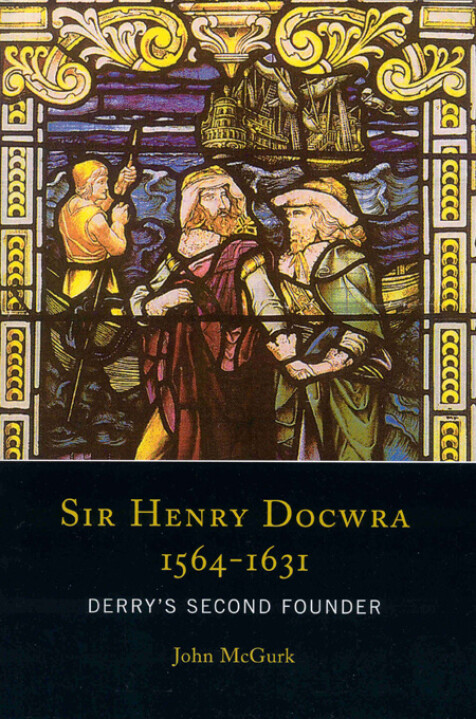Sir Henry Docwra, 1564–1631
Derry's second founder
John McGurk
‘[McGurk] narrates the important role Docwra played in the conquest of Gaelic Ulster, and the subsequent duplicity towards him of the government …. McGurk rightly points out, Docwra must be regarded as the actual founder of the city of Derry, a charter for which he secured from James I in 1604 … a fascinating and readable account of its subject', Brian Lacey, Peritia.
'Dr McGurk … argues that Docwra’s posthumous reputation has suffered from lack of a contemporary independent apologist or war correspondent in a way that Mountjoy had Fynes Moryson. This well-researched book has gone far to fill that gap', CF McGleenon, Seancas Ard Maca.
‘This is the first full-length study of Docwra. It has been well worth the wait … there is little doubt that Docwra was personally courageous. Even the contemporary Irish annalists describe him as “an illustrious knight of wisdom and prudence, a pillar of battle and conflict”. He emerges from this work as a tactful, discreet, and patient man, as a hardened, experienced, and cautious commander, as a public-minded official, and less greedy than most of his military contemporaries. McGurk’s biography is a splendid achievement, elegantly and perceptively written. Docwra has at last found his Boswell', John Bradley, The Sixteenth Century Journal (Fall 2009).
‘Makes another significant and lasting contribution to our understanding of that pivotal episode in Irish, and English, history. … This is an excellent book in which Dr McGurk succeeds in throwing important new light on the Nine Years War and of the role in it of one of Elizabeth’s most significant, but cautious, commanders', Henry A. Jefferies, Irish Historical Studies.
‘Not only does he [John McGurk] bring his erudition to bear upon the conduct of Dowcra’s campaign in the north-west but he also illuminates the lesser-known later period of the veteran soldier’s career as a civil servant in Dublin. Thanks to these scholarly endeavours, a rounded picture emerges of this difficult, dogged and ultimately disillusioned Englishman who laboured in Ireland as soldier and civilian for almost thirty of his sixty-seven years … Among the achievements of Dr McGurk’s book is the evocation of the topographical identity of Derry’s hinterland and the town’s emergence from urban somnolence into municipal vibrancy and privation among English recruits in 1600 ... The author succeeds moreover in conveying the life of an apparently humourless and obtuse man with some wit and lightness of touch ... Above all, the book is a worthy addition to the small but growing corpus of biographies of English servitors in early modern Ireland whose motivations for and perceptions of their task in bringing their mores and norms to the island afford valuable insights into the colonial menalité’, Colm Lennon, Studia Hibernica (October 2008).

